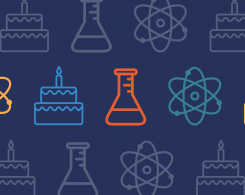Today in Science Blog Posts

Why Room Acoustics Matters
How come a recorded soundscape is never as satisfying as listening to the real thing? The answer lies in the phenomenon of room acoustics. Get a comprehensive overview of this concept here.

Shaping the Future with Holography
Did you know that holography was first developed by Dennis Gabor in 1948? Because of his discovery, he was awarded the Nobel Prize in Physics in 1971. See how the field has expanded since then.

Hygroscopy of Brown vs. White Sugar, the Banana Bread Test
Physics in the kitchen: We bake 2 loaves of vegan banana bread to compare the hygroscopic properties of white and brown sugar. Get details — and the recipe! — on the blog.

Infrared Pothole Repair: A More Permanent Solution
Potholes are an annoying reality for anyone who drives a car. We discuss how potholes form in asphalt and a potential way to permanently repair them using infrared technology.

Vinyl Records: A Sound All Their Own
Here’s a piece of music trivia: Vinyl records can be traced back to the development of the phonoautograph in 1855 by Édouard-Léon Scott de Martinville.

Designing Future Technologies with Gallium
Here’s a piece of element trivia: Gallium’s existence was first predicted by Dmitri Mendeleev in 1871, but it was not discovered spectroscopically until 1875 by Lecoq de Boisbaudran.

Magnetic Cooling Technology in Refrigeration
Is your refrigerator running? Then you better go catch it (and see if it uses magnetic cooling technology, which offers a greener approach to preserving foods)!

Selective Laser Sintering for Prototype Production
A type of 3D printing called selective laser sintering is used to produce everything from metal prototypes and plastic, ceramic, and glass materials to coffee! Learn about modeling this process.
